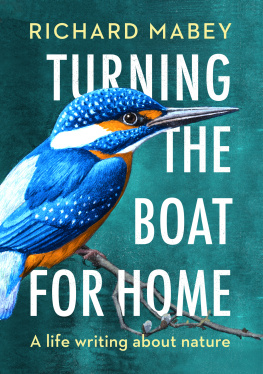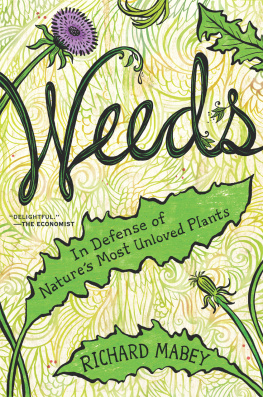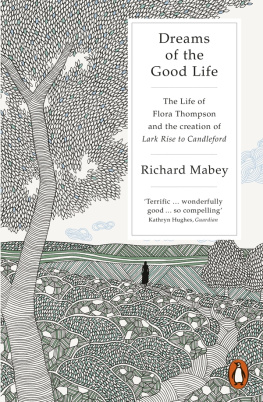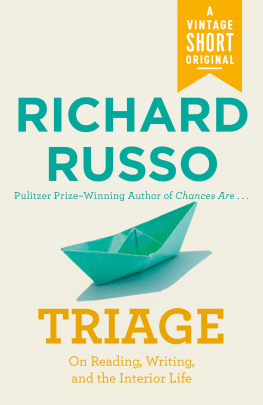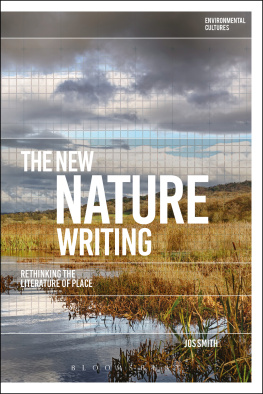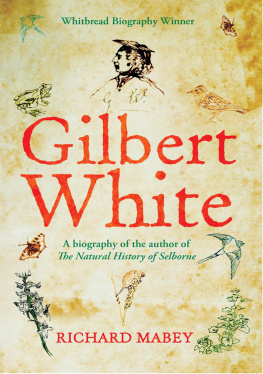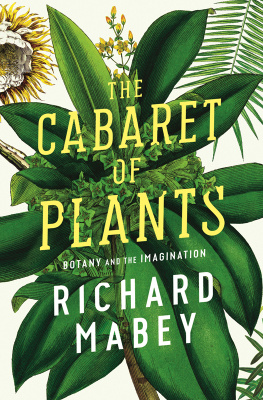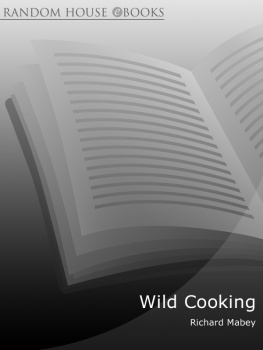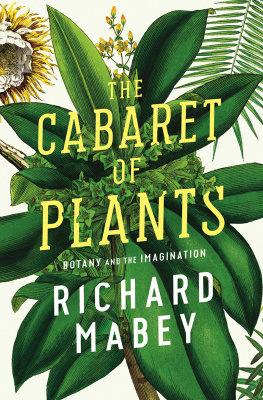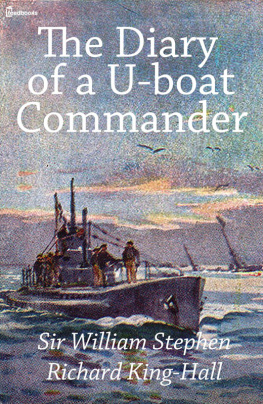Richard Mabey - Turning the Boat for Home: A life writing about nature
Here you can read online Richard Mabey - Turning the Boat for Home: A life writing about nature full text of the book (entire story) in english for free. Download pdf and epub, get meaning, cover and reviews about this ebook. year: 2019, publisher: Vintage Digital, genre: Detective and thriller. Description of the work, (preface) as well as reviews are available. Best literature library LitArk.com created for fans of good reading and offers a wide selection of genres:
Romance novel
Science fiction
Adventure
Detective
Science
History
Home and family
Prose
Art
Politics
Computer
Non-fiction
Religion
Business
Children
Humor
Choose a favorite category and find really read worthwhile books. Enjoy immersion in the world of imagination, feel the emotions of the characters or learn something new for yourself, make an fascinating discovery.
- Book:Turning the Boat for Home: A life writing about nature
- Author:
- Publisher:Vintage Digital
- Genre:
- Year:2019
- Rating:3 / 5
- Favourites:Add to favourites
- Your mark:
- 60
- 1
- 2
- 3
- 4
- 5
Turning the Boat for Home: A life writing about nature: summary, description and annotation
We offer to read an annotation, description, summary or preface (depends on what the author of the book "Turning the Boat for Home: A life writing about nature" wrote himself). If you haven't found the necessary information about the book — write in the comments, we will try to find it.
Turning the Boat for Home: A life writing about nature — read online for free the complete book (whole text) full work
Below is the text of the book, divided by pages. System saving the place of the last page read, allows you to conveniently read the book "Turning the Boat for Home: A life writing about nature" online for free, without having to search again every time where you left off. Put a bookmark, and you can go to the page where you finished reading at any time.
Font size:
Interval:
Bookmark:



Richard Mabey is the father of modern nature writing in the UK. Since 1972 he has written some forty influential books, including the prize-winning Nature Cure, Gilbert White: a Biography, and Flora Britannica. He is a Fellow of the Royal Society of Literature and Vice-President of the Open Spaces Society. He spent the first half of his life amongst the Chiltern beechwoods, and now lives in Norfolk in a house surrounded by ash trees.
ALSO BY RICHARD MABEY
Food for Free
The Unofficial Countryside
The Common Ground: A Place for Nature in Britains Future?
The Flowering of Britain
The Frampton Flora
Gilbert White: A Biography
Home Country
Whistling in the Dark: In Pursuit of the Nightingale
Flora Britannica
Selected Writings, 19741999
Nature Cure
Fencing Paradise
Beechcombings: The Narratives of Trees
The Full English Cassoulet
A Brush with Nature
Weeds
The Perfumier and the Stinkhorn
Turned Out Nice Again
Dreams of the Good Life: A biography of Flora Thompson
A Good Parcel of English Soil (Metroland)
The Cabaret of Plants: Botany and the Imagination
For Peter Newmark, old friend, who was there for a lot of this
Britains leading natural history writer
Richard Holmes
It is hard to imagine Mabeys equal in writing about nature
Caroline Gascoigne, Sunday Times
Enraptured, visionary, witty and erudite
Jonathan Keates, Daily Telegraph
Mabey is or should be a national treasure the finest current flowering of a great British tradition that includes not just prose writers but also the poets William Wordsworth and John Clare. He makes you feel that your home is much bigger and stranger than you ever imagined and it makes you glad no, astounded to be alive
Bryan Appleyard, The Times
LOVE Richard Mabeys books
Margaret Atwood
Consistently delightful
John Gray, New Statesman
The steward of a pastoral tradition [which matches] highly personal responses with expert environmental concerns
Andrew Motion, Guardian
Mabeys forte is a quality of observation that combines a keen analytical edge with emotional passion and an artists eye
Jane Shilling, Daily Telegraph
Mabey offers a diversity and richness of fact, fiction, philosophy and fun he opens our minds and hearts in unexpected ways to the fallacy of an implacable divide between people and nature
Professor Stephen Hopper, Director, Kew Gardens
Mabey is the kind of person you wish you had with you on every country walk, identifying, explaining, deducing, drawing on deep knowledge lightly worn
Country Life
Britains greatest living nature writer
Andrew Billen, The Times
It is the most intense and prolonged physical scrutiny I have ever had from a friend. For hours on end. Jons face is no more than eighteen inches from mine. Hes peering at the bags under my eyes, noting the nervous twitches of my mouth, logging moods made flesh. Every few seconds his gaze moves to the ball of clay on a rotating stand just to his right, and a few more pellets, the saggy increments of age, are added to what is beginning to resemble my chin.
I was immeasurably touched when Jon Edgar invited me to have my head sculpted as one part of an environmental triptych he was making. The other two subjects were James Lovelock, creator of the Gaia hypothesis, and the philosopher Mary Midgley, so I was in flattering company. Now, perched on a stool (also rotatable), set between my study and our garden pond, I wasnt so sure. I felt exposed and vulnerable and very self-conscious.
But the feeling didnt last. Over what proved to be two days of sitting I began to slip into a state of Zen-like relaxation. Jons method of working was to begin with a central wood peg, and gradually build up the head with small pieces of clay kneaded into place with his thumb, an oddly calming action to watch, as if he was massaging me instead. I had no clear notion of how the work was progressing, as Jon kept my features facing away from me, though halfway through he gave me a glimpse of what then, shockingly, resembled a photo of my father at half my age. Was this what I was turning into? But I soon stopped worrying, particularly about how easily I was distracted by stomach rumbles, by a flock of long-tailed tits tumbling into the hawthorn bush just to my right, by the ceaseless fidgets of my facial muscles that always made me such an awkward subject for photographers. To have an impartial observer contemplate your face the window to who you are so closely, without making a value judgement was both novel and therapeutic. I started to feel comfortable about the way I looked, who I was. The solid veracity of the clay helped: this is you, like it or not.
In the end I did like it. The finished head, cast in bronze, wasnt that of the slightly haunted thirty-year-old I sometimes fantasised I still resembled, but a senior citizen with a thickening neck and a touch of gravitas. Ten years on it sits in the library, topped with a rakish straw hat I picked up in a Provenal market, now a reminder of a moment in my past, but and this is Jons art with intimations of what went before and of future ageing caught in the metal sinews.
Jon subsequently cast a second bronze, and planted it outdoors in his garden, having discovered that rainwater and urine contributed greatly to the patina. The Lady Scott and Mabey bronzes, he told me, were shot-blasted clean and then put on copper pipe spikes in the vegetable patch. These were weed on regularly, and now, several years later, have some of the finest patinas akin to the qualities of the bronzes which have been retrieved from under the sea after thousands of years.
I rather like the idea of an image of myself being assembled out of daubs of earth, and being the result of a kind of dialogue, not of earnest and solitary introspection. Over the years, Ive written many fragments of memoir, about landscapes explored, fantasies made real, about roots and routes. But Ive never felt that I was up to writing a full-blown autobiography. Partly its a failure of memory, and of confidence. I am hopeless at recalling long-lost inner feelings, the details of family transactions, even recent conversations. I am in awe of those writers who seem able to recount, exactly, sitting on their fathers knee (it is always the father) aged four, the smell of his tobacco and the words on the page of the book open on his lap. And I lack the novelists skill to make it all up. But, to be honest, the real reason is that I have no burning passion to explore those aspects of life that are the meat of conventional autobiography.
Next pageFont size:
Interval:
Bookmark:
Similar books «Turning the Boat for Home: A life writing about nature»
Look at similar books to Turning the Boat for Home: A life writing about nature. We have selected literature similar in name and meaning in the hope of providing readers with more options to find new, interesting, not yet read works.
Discussion, reviews of the book Turning the Boat for Home: A life writing about nature and just readers' own opinions. Leave your comments, write what you think about the work, its meaning or the main characters. Specify what exactly you liked and what you didn't like, and why you think so.

